children
Latest
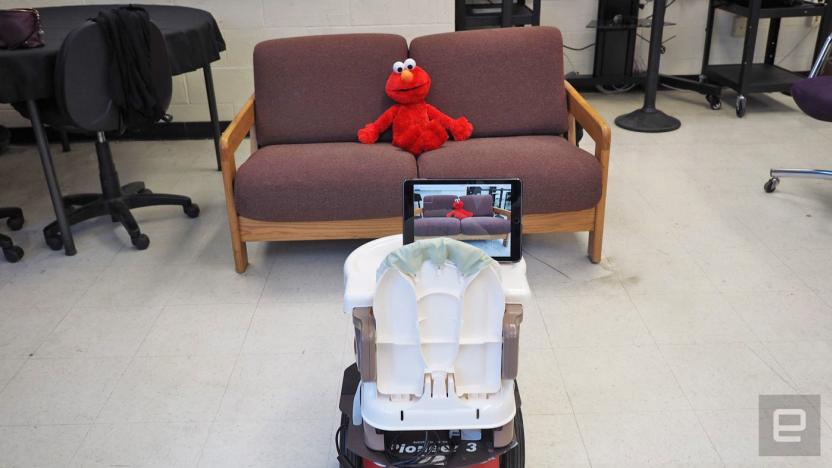
Tot Bot helps physically disabled toddlers explore
As any parent of a small child knows, toddlers want to explore. They want to look and touch (and sometimes even taste) everything. It's how they learn about the world. Unfortunately, kids with certain physical disabilities can't move about as easily. This difficulty can create a bit of a cognitive gap between them and other kids their age. The Tot Bot is a chair designed to give these children the increased mobility they need to investigate their surroundings thoroughly.
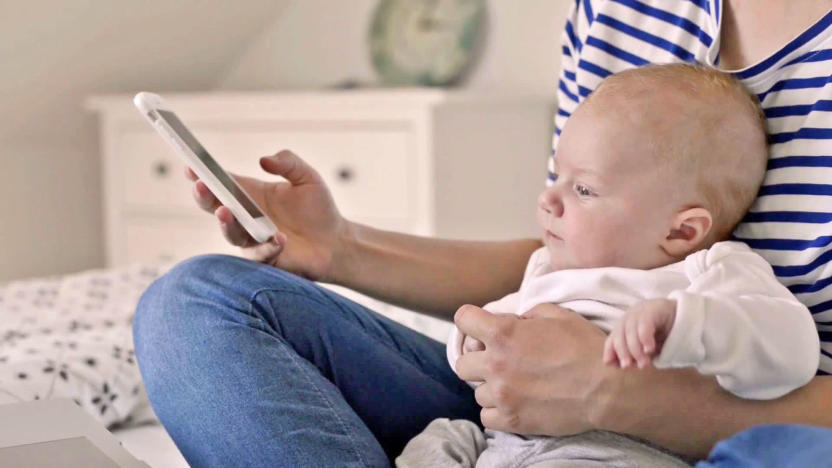
Toddlers who use touchscreens sleep less, study says
Toddlers really need their sleep. It's crucial when our brains are first developing, so early problems can ripple across your lifetime. That makes a report by Birbeck University of London researchers somewhat disturbing -- they found that toddlers between six and 11 months who play with smartphones or tablets get slightly less sleep than those who don't. According to the study of 715 parents, every hour of touchscreen use results in 15.6 minutes less sleep, or 26.4 minutes less total per night and 10.8 minutes more during the day, on average.
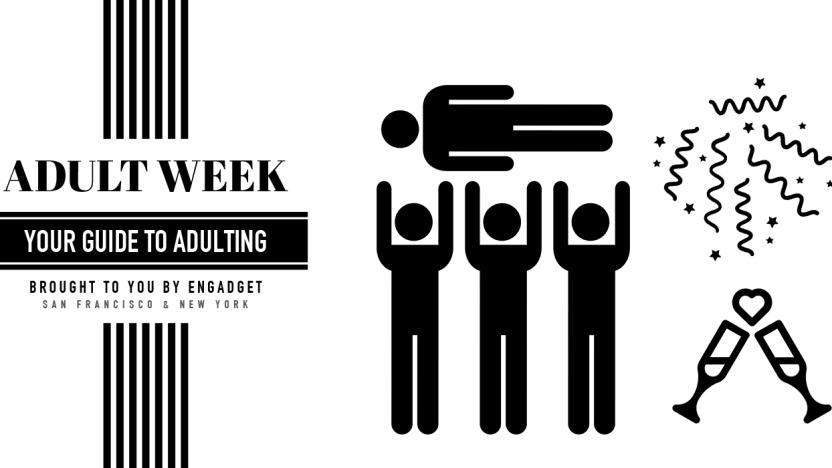
Welcome to Engadget's Adult Week
None of us are in much of a rush to grow up. But, eventually, the day comes when you need to give up the slovenly ways of your college years and hard partying habits of your early 20s. It's time for you to become an adult. That means ditching the pajama pants and ratty band T-shirts for some big boy and big girl clothes. It means protecting your data from hackers and scammers. Oh, and it means making some pretty big life decisions -- like do you need to buy a car and whether you should post photos of your child on the internet. All this week Engadget will be bringing you stories about how to use technology to become a better grownup and how to navigate our tech-saturated world in a manner befitting a real deal adult. The web is a great resource for fashion advice and a solid place to start if you want to turn your deeply held political views into serious activism. It can also help you find love and companionship once hanging out at the bar until 4am loses its appeal. It's time to become an independent and constructive member of society. Check out all of Engadget's "Adult Week" coverage right here.

WHO: Pollution is killing millions of children each year
The World Health Organization (WHO) released its first report on children's health and the environment, showing that the effects of pollution are felt most strongly by the very young. Of the deaths of children under five, a quarter are caused by smog, second-hand smoke, inadequate hygiene, unsafe water and other environmental risks. "[Young children's] developing organs and immune systems, and smaller bodies and airways, make them especially vulnerable to dirty air and water," said WHO Director-General Margaret Chan.
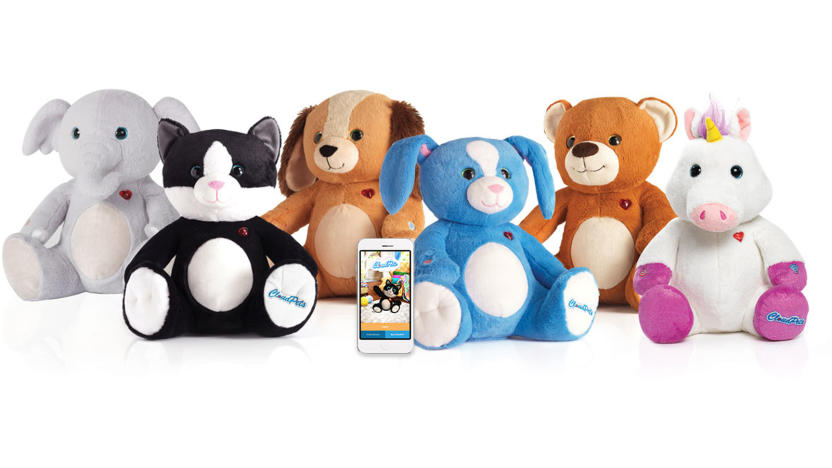
Connected teddy bears leaked kids' voices online
When Germany banned a connected doll over security concerns, it wasn't being overly cautious. As it turns out, there's a textbook example of what happens when toy data privacy goes horribly wrong. Security researchers have discovered that Spiral Toys' internet-savvy teddy bears, CloudPets, stored kids' voice messages to their parents (not to mention names and birthdays) in an insecure, misconfigured database that anyone could access online. While the passwords for the toys' accounts (over 821,000 of them) were stored in a cryptographic hash, there was no password strength limit -- it was trivial to crack many accounts and download voice data at will. And it gets worse.

Hasbro's cute new robo-dog teaches coding on the sly
Toy makers are coming up with more and more ways to encourage children to learn STEM skills, and Hasbro is trying to do that in a somewhat futuristic way. The company is releasing a $120 robotic dog toy called Proto Max as part of its FurReal Friends line of animatronic pets that children can customize via an app. To be clear, you'll be tweaking this robo-dog's behavior and character, not the colors of its eyes or fur or the shape of its nose or face. That initially sounded a bit too much like pet Westworld to me, but after a brief demonstration, I was persuaded to quiet my internal ethics police.

Amazon club gives your kid a science toy every month
A well-made educational toy can do a lot to foster curious young minds. But what if you're not sure where to start shopping, or wonder which toys are appropriate at your kid's age? Amazon is taking an unusual step to help out. It just launched a STEM Club that delivers one pre-selected science, tech, engineering or math toy to your door each month in exchange for a $20 subscription fee. The internet retailer gives you a choice of age ranges (3-4, 5-7 and 8-13), and promises to pick only the best toys from "top trusted brands." Shipping is free, too.
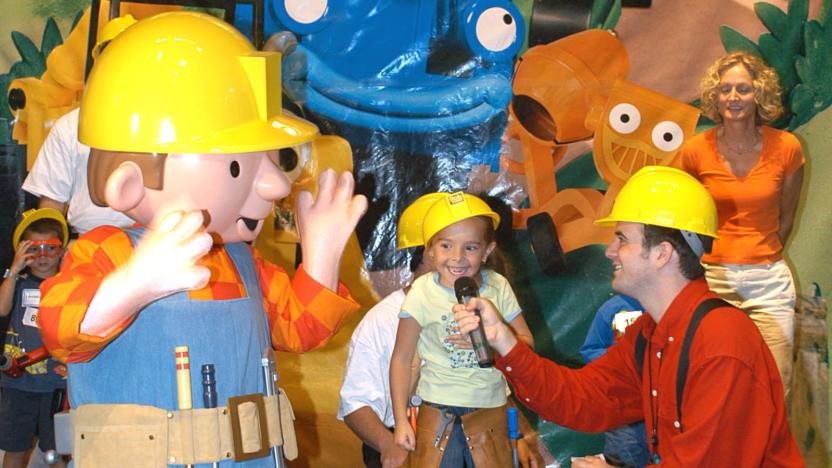
PBS' new kids' channel lets you flip between streams and games
When you give kids digital educational content, you're frequently forced to choose between passive viewing and games. Why can't you offer both? PBS wants to give it a try. It just launched a free 24/7 national channel, PBS Kids, where a live internet stream is just the start of the strategy. At a later point in the year, you'll have the option of switching between the stream and an activity that builds on what the show offers. Your young one will have an easy way of putting what they've learned into practice.

Circuit Cubes make engineering basics a snap for kids
Kids who fall in love with technology and engineering have never had it better. There's no shortage of websites and tutorial videos and hardware kits meant to teach them the fundamentals of crafting their very own gadgets, but I'd argue few are as elegant -- or as fun -- as Tenka Labs' Circuit Cubes. They're tiny modules laden with magnets, batteries, sensors and other fun little components, but since they're cubes, they allow players to build complex, multifunctional structures in three dimensions. Imagine a mash-up between LittleBits and Lego and you're on the right track.

Mattel's Aristotle is a kid-focused Echo alternative
First there was Alexa, Siri, Cortana and the Google Assistant. Now you can prepare to add Aristotle to that growing list of voice-enabled assistants. Mattel's cheerful AI companion differs from the competition by focusing on children, first and foremost. It's been packaged inside a smart speaker (what else?) and promises to understand your little one's vocal ramblings, all the way from toddler to middle school. That's a bold promise, given most of the current offerings struggle with even the most eloquent adults. Mattel says it's solved the problem with a custom AI engine, which uses a mixture of "natural language processing" to learn your child's enunciation.

Mattel built a $300 Echo for kids
It's late, and you're tired. Before you can knock off for the night, however, there's one thing left to do: read your child a bedtime story. In Mattel's world, you might not have to pick up a book or even put on voices for their favorite characters. That's because it's working on an Echo-style speaker with an assistant called Aristotle. It's built specifically for kids, offering games, facts and soothing sounds on demand. Most importantly, it has the smarts to recognize your little one's less-than-perfect speech and adapt as she gets older and more curious about the wider world.

Killing children in 'What Remains of Edith Finch'
Young Calvin Finch sits on a swing perched atop a steep seaside cliff while the afternoon sun warms the waves, grass and trees. Calvin's left leg is in a cast, but he easily swings his feet back and forth, pushing higher and higher over the cliffside. He wants to do a full circle on the swing set; he knows it's possible if he tries hard enough. Back and forth, back and forth. Cast kicking, he climbs higher, parallel to the ground and shooting back down, swinging his legs even harder. And then, with a final determined kick, he does it. Calvin flies around and around, branches of the tree above him scratching his face and body, leaves and twigs falling to the ground. Suddenly, on the last high-velocity rotation, Calvin lets go of the chains, and his body soars over the cliff, cast and all. For a moment, he flies above the water, toward the setting sun. And then, he's dead.

Internet-connected toys accused of spying on kids
Smart toys can certainly inject some life into playtime, but they raise big privacy concerns when an internet connection is involved... and if you believe some critics, at least a few toys have crossed the line. Over 18 privacy groups are filing complaints with both the US' Federal Trade Commission and the European Union alleging that Genesis Toys and its tech partner Nuance are violating deceptive practices and privacy laws (including COPPA) through the way certain toys record kids' voices. Reportedly, i-Que and My Friend Cayla not only capture kids' voices without adequate notice or permission, but send it to Nuance with few safeguards over how that information is handled. It could be used in databases that Nuance sells to police and intelligence agencies, the groups say.

Study: most students can't spot fake news
If you thought fake online news was a problem for impressionable adults, it's even worse for the younger crowd. A Stanford study of 7,804 middle school, high school and college students has found that most of them couldn't identify fake news on their own. Their susceptibility varied with age, but even a large number of the older students fell prey to bogus reports. Over two thirds of middle school kids didn't see why they shouldn't trust a bank executive's post claiming that young adults need financial help, while nearly 40 percent of high schoolers didn't question the link between an unsourced photo and the claims attached to it.
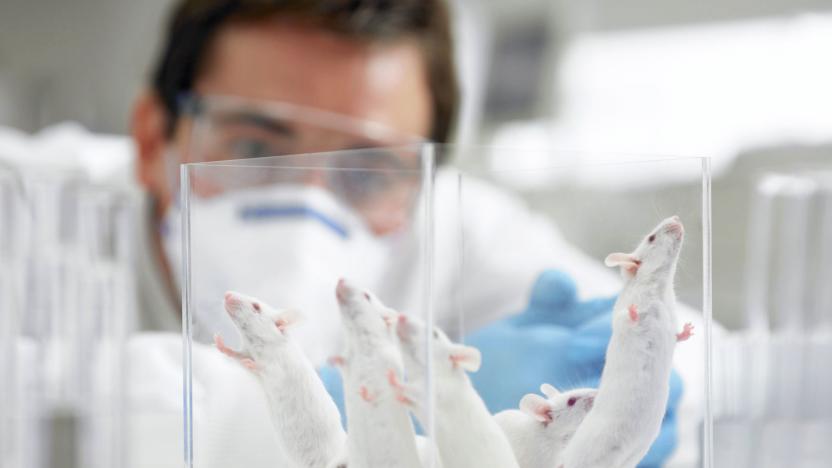
Rodent trials suggest screen-addiction hurts child development
A new study from the Seattle Children's Research Institute may have taken the first step towards confirming something my parents have been telling me for decades: too much TV rots your brain. Well, at least it does for mice. Scientists found that raising groups of mice in an environment designed to simulate extreme screen exposure developed behaviors similar to those found in children with ADHD -- resulting in adult mice with more memory problems and less patience.

iBooks StoryTime app narrates children's stories on your Apple TV
To encourage parents and kids to read together, Apple has debuted a new app for tvOS. The iBooks StoryTime app features "Read-Aloud" tool that narrates books and flips pages automatically. For the times when you'd rather read to your child yourself, you can turn the feature off and turn to the next page by swiping with the Apple TV remote.

EE updates its £130 Robin tablet for kids ahead of Christmas
It was a year ago to this very day that EE began offering the first Robin tablet: a bumper-bound slate designed with kids in mind. And with Christmas fast approaching, the carrier has today launched an updated, second-gen Robin to fill those empty stockings. It brings a few welcome, albeit relatively minor improvements on the hardware front. You're still looking at a 7-inch (1,024 x 600) display, quad-core 1.1GHz processor and 2-megapixel camera, but both RAM and storage have doubled to 2GB and 16GB, respectively.

Amazon's new reading app for kids combines humor and text messages
Amazon has been obsessed with the act of reading for years, and now it's trying (again) to get kids obsessed with it too. That's why the company spent the last year building Amazon Rapids, a reading app launching today meant to help youngsters understand the joy of reading. So, what does $2.99 a month actually get you? A surprisingly fun, focused way to experience stories.

FTC complaint blasts Disney, Google over child influencer videos
It's sketchy enough when companies send free products to YouTube stars in return for positive coverage, but it's worse when those videos are explicitly aimed at kids. How is a young child supposed to tell the difference between genuine enthusiasm and someone compelled to say good things in return for gifts? That's what a handful of consumer watchdog groups plan to solve. Campaign for a Commercial-Free Childhood, Center for Digital Democracy and Public Citizen have filed a complaint asking the FTC to stop the practice of aiming influencer videos at kids. Companies like Disney and DreamWorks (via Maker Studios and AwesomenessTV) are allegedly being "unfair and deceptive" by targeting these pseudo-ads at the preteen crowd. Google, meanwhile, purportedly "encourages and benefits" from distributing these videos on YouTube and YouTube Kids.
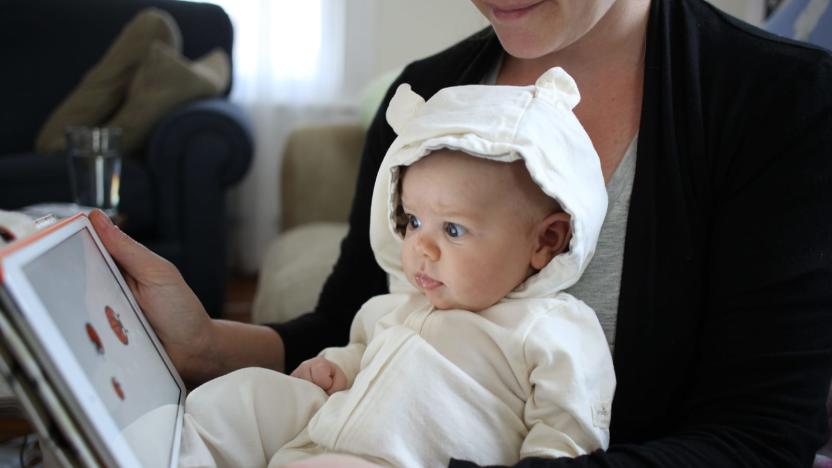
Doctors relax rules on letting babies watch screens
Ever since 1999, many pediatricians have clung to one main recommendation about kids and gadgets: you shouldn't show screens to any child under 2 years old. However, they've just loosened that once-firm policy. The American Academy of Pediatrics has softened its guidelines to permit screens for the under-2 crowd in the right circumstances. If your little ones are 18 months or older, they can watch "high-quality programming" (think PBS and Sesame Workshop) so long as you're there to help your kids understand. Any younger than that and you should limit them to video chat, the AAP says.










